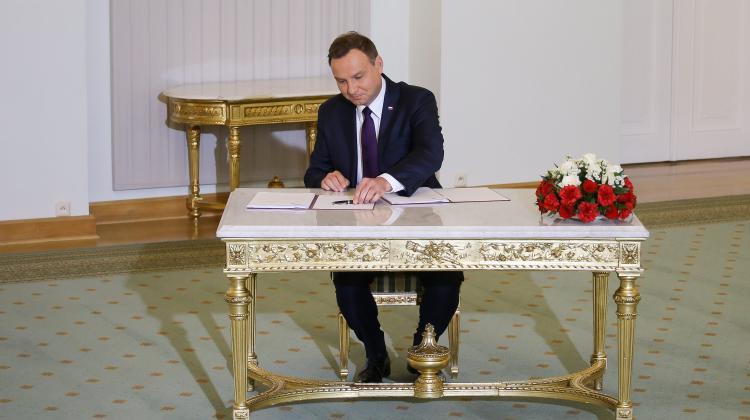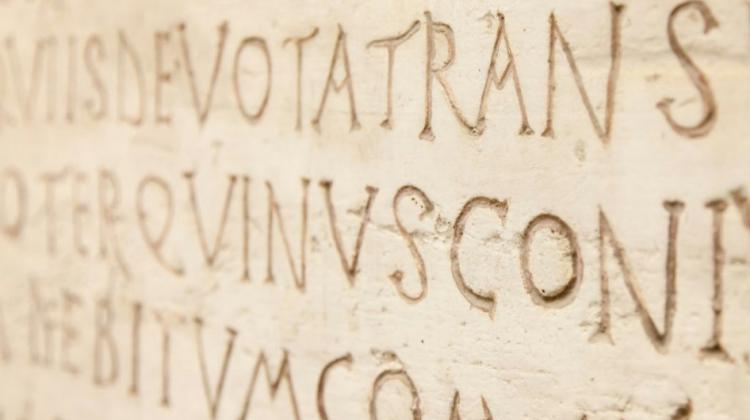From October less bureaucracy at universities - President signed the law

Less bureaucracy at universities, less frequent periodic evaluation of academic teachers and expedited procedure for granting student loans are introduced in the amendment to the Law on Higher Education, signed by President Andrzej Duda.
The signing of the bill was announced last Monday on the Office of the President website.
Reducing the bureaucratic burden of universities was one of the main goals set by Deputy Prime Minister, Minister of Science and Higher Education Jarosław Gowin shortly after he took office. The work of the Ministry of Science on the amendment of the Law on Higher Education was accompanied, among other things, by internet consultations, as a result of which the ministry received hundreds of suggestions for changes.
"In 2011 and 2014, for the right reasons - the desire to reconcile the model of higher education with the Bologna process and create objective evaluation procedures - profound changes were introduced in higher education, which resulted in a huge bureaucratisation. The postulate to remove red tape at universities is commonly voiced" - said minister Gowin during the legislative work on the bill.
He explained that reducing bureaucracy would include firstly the National Qualifications Framework, secondly the principles of functioning of the Polish Accreditation Committee. "We reduce the frequency of a number of reports, the frequency of evaluation of employees, but also facilitate access to student loans" - emphasised the Minister of Science, talking about the amendment of the law.
One of the most important changes introduced by the amendment is a modification of the criteria used by the Polish Accreditation Committee (PKA) in the assessment of the quality of education. The amendment removes the formal, control duties of the Polish Accreditation Committee, transferring them to the Ministry of Science. "Until now, the rules forced the Committee to assume the role of a control institution. It is a misinterpretation of the Committee\'s mission. It should have the role of an expert, mentor, help universities improve the quality of education, pursue educational excellence" - described Gowin.
Among the significant provisions of the amendment is also a reduction of the frequency of periodic evaluations of, among others, academic teachers, researchers employed by the institutes of the Polish Academy of Sciences and research institutes. After the changes, such evaluations will be carried out every four years. Until now - in the case of a large part of these groups of employees - the evaluation had to be carried out every two years.
The amendment also includes provisions concerning competitions for positions. The requirement to hold a competition in the event of a promotion of academic teacher has been abandoned. The amendment also expands the list of institutions in which academic teacher working in a public university will be allowed to be employed without rector\'s permission. They will include schools, lifelong learning institutions and artistic institutions.
The amended law also includes provisions related to the quality of doctoral studies. According to the new provisions, the number of participants of full-time doctoral studies may not be lower than the number of part-time doctoral students in a given unit. Universities will also have more freedom in shaping the postgraduate studies offer.
The amendment signed by the president also changes the rules for granting rector scholarships for academic achievement. Now scholarships may also be awarded to first-year students, for example on the basis of participation in Olympiads. Until now, scholarships have been available from the second year of study, after fulfilling the conditions of grade average or additional achievements. The amendment also includes changes that - through the process of reducing red tape - are intended to expedite the process of granting student loans.
These changes are only a prelude to a deep and comprehensive reform of the higher education system. Three teams of scientists, selected in a competition organized by the Ministry of Science are working on the assumptions for the new Law on Higher Education.
The law signed by the President will come into force on 1 October 2016, except for several provisions that will apply from 1 January 2017. (PAP)
ekr/ agt/ mrt/
tr. RL
Przed dodaniem komentarza prosimy o zapoznanie z Regulaminem forum serwisu Nauka w Polsce.


















